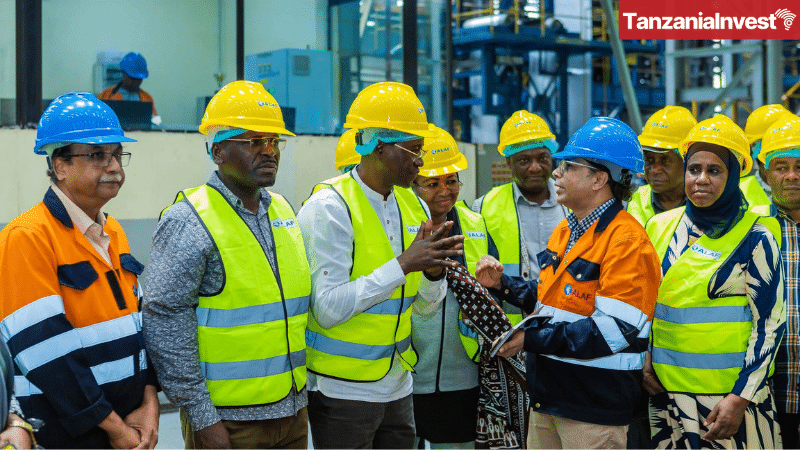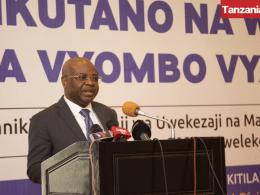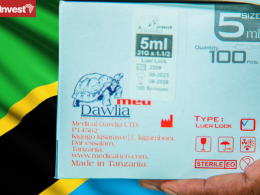On November 2nd and 3rd, 2024, the Parliamentary Standing Committee on Industries, Trade, Agriculture, and Livestock, led by Hon. Deodatus Mwinyika, conducted a tour of major manufacturing facilities in Tanzania.
The visit, organized in collaboration with the Confederation of Tanzania Industries (CTI), aimed to foster closer relations between the government and industry players while addressing key challenges faced by the manufacturing sector.
The delegation included Hon. Exhaud Kigahe, Deputy Minister of Industry and Trade, Hon. Ambassador Dr. John Stephen Simbachawene, Deputy Secretary General of the Ministry of Industry and Trade, Dr. Toba Nguvila, the Dar es Salaam Regional Administrative Secretary (RAS), and Eng. Leodegar Tenga, CEO of CTI.
The primary goal of the visit was to explore ways to boost the growth of Tanzania’s industrial sector, supporting its vital role in the national economy.
The committee toured four major facilities: Tanzania Cigarette Company (TCC), Alaf Limited, Tanzania Breweries Ltd (TBL), and Serengeti Breweries Limited (SBL).
These companies, leaders in their respective industries, showcased their contributions to the economy and outlined challenges impacting their operations.
At TCC, the delegation observed the complex processes behind cigarette production and engaged in discussions about the regulatory frameworks governing the tobacco industry. TCC emphasized its commitment to sustainable practices and job creation, highlighting its role as a major contributor to the economy.
Next, the group visited Alaf Limited, Tanzania’s premier manufacturer of roofing solutions. Alaf showcased its innovative building materials that play a crucial role in the country’s construction sector. The visit also highlighted the company’s dedication to sustainability and its contribution to infrastructure development.
The committee then toured Tanzania Breweries Limited (TBL), Tanzania’s oldest brewery and a key player in the beverage industry. TBL demonstrated its significant contribution to local agriculture through its sourcing of raw materials from Tanzanian farmers. Discussions also touched on the company’s community engagement initiatives aimed at promoting responsible drinking.
On November 3rd, the delegation visited Serengeti Breweries Limited (SBL), one of Tanzania’s largest beer producers with over 28% market share. During the visit, SBL proposed the introduction of a new excise tax band for beer produced using at least 75% local raw materials, which would further promote the use of homegrown ingredients in the manufacturing process.
Throughout the tour, industry representatives discussed several pressing issues, including the high costs associated with emissions trading systems (ETS), low import duties on colored coils that threaten domestic competitiveness, and significant disparities in excise duties between locally malted beer (Tsh 620/L) and beer produced using imported malt (Tsh 918/L).
These challenges were presented alongside proposals for policy reforms aimed at creating a more favorable business environment.
The Parliamentary Committee expressed its commitment to addressing these challenges, acknowledging the crucial role the manufacturing sector plays in Tanzania’s economic development.
The tour reinforced the importance of collaboration between the government and the private sector to drive industrial growth, investment, and innovation.










